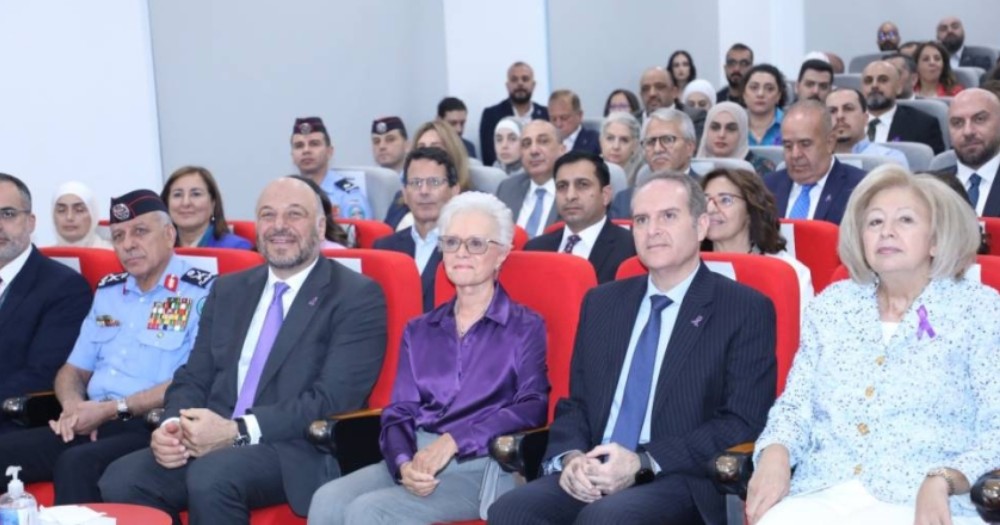Jordan launches “Eye Locate” technology launches for Alzheimer patients

In a groundbreaking move to enhance the safety of Alzheimer's and dementia patients, Jordan has launched the world's first iris-based identification system, known as "Eye Locate." This innovative technology aims to quickly reunite lost or wandering individuals with their families, providing much-needed relief and security to caregivers.
The launch, held under the patronage of HRH Princess Muna Hussein, Honorary Ambassador for Alzheimer's Disease International, represents a significant step forward in using technology for public benefit.
How does it work?
"Eye Locate" leverages advanced iris recognition technology to identify Alzheimer's and dementia patients who have wandered away from home. The system operates through a specialized database managed by the Oun for Alzheimer's Patient Care Association. Public security officers equipped with portable devices can scan a found patient's iris, instantly confirming their identity and notifying their caregivers within seconds. Families can register their loved ones' information through a dedicated call center linked to Al Oun's online platform, ensuring that all data is handled with the highest standards of privacy.
A video presentation during the launch illustrated the step-by-step process of how authorities would handle patients once they are found. It covered essential measures to ensure their safety and facilitate their quick return to their families. The technology, developed in collaboration with biometric technology leader IrisGuard, demonstrates how cutting-edge innovation can be applied to enhance public safety and healthcare services.
Why does it matter?
The introduction of the "Eye Locate" system is a vital development for families affected by dementia and Alzheimer's disease, offering a sense of hope and security. According to Princess Muna, this initiative highlights Jordan's commitment to using technology for public benefit, potentially serving as a model for other countries worldwide.
Ahmed Tijani, a board member of NatHealth, emphasized the system's dual role: "Not only does it help reunite families, but the information gathered could also be valuable for future Alzheimer's research."
By quickly identifying and returning wandering patients to their families, this technology reduces the risk of harm and alleviates the emotional and financial burden on caregivers. Furthermore, it reinforces NatHealth's mission of supporting community-focused projects that make a tangible difference in people's lives.
The context
The launch of "Eye Locate" marks a significant collaboration between several key players, including the Oun for Alzheimer's Patient Care Association, the Public Security Directorate, IrisGuard, and NatHealth. The event was attended by notable dignitaries such as Public Security Director General Major General Obaidallah Maaytah, who stressed the importance of this initiative in protecting vulnerable individuals.
With Alzheimer's and dementia rates rising globally, the need for innovative solutions to safeguard affected populations is more pressing than ever. IrisGuard, renowned for its contributions to biometric technology, brings its expertise to this humanitarian cause, showcasing the versatility of iris recognition technology across various sectors. As the primary sponsor, NatHealth continues to lead in healthcare management, championing efforts that enhance safety and support vulnerable communities.
Further, by pioneering the "Eye Locate" system, Jordan sets an example of how technology can be harnessed to protect the most vulnerable, offering a beacon of hope for families worldwide.
💡Did you know?
You can take your DHArab experience to the next level with our Premium Membership.👉 Click here to learn more
🛠️Featured tool
 Easy-Peasy
Easy-Peasy
An all-in-one AI tool offering the ability to build no-code AI Bots, create articles & social media posts, convert text into natural speech in 40+ languages, create and edit images, generate videos, and more.
👉 Click here to learn more


